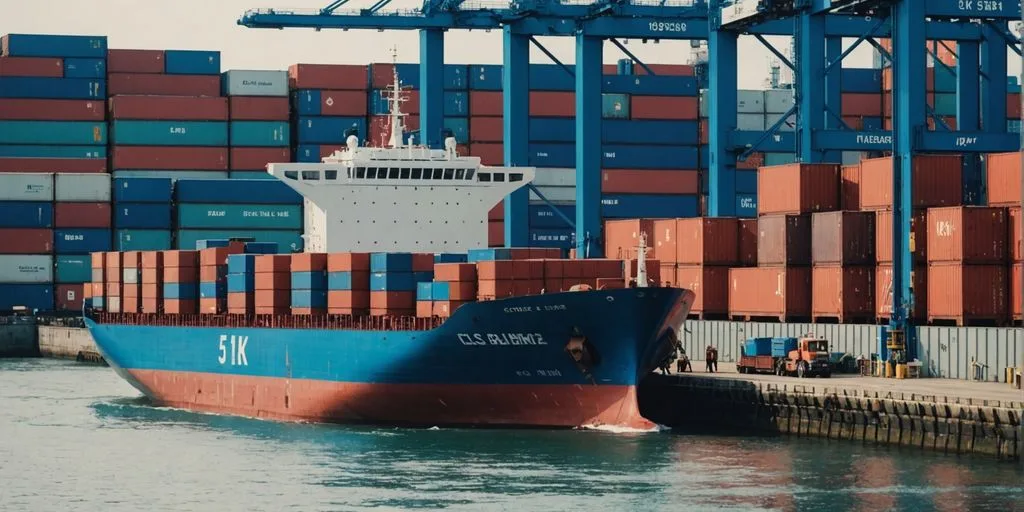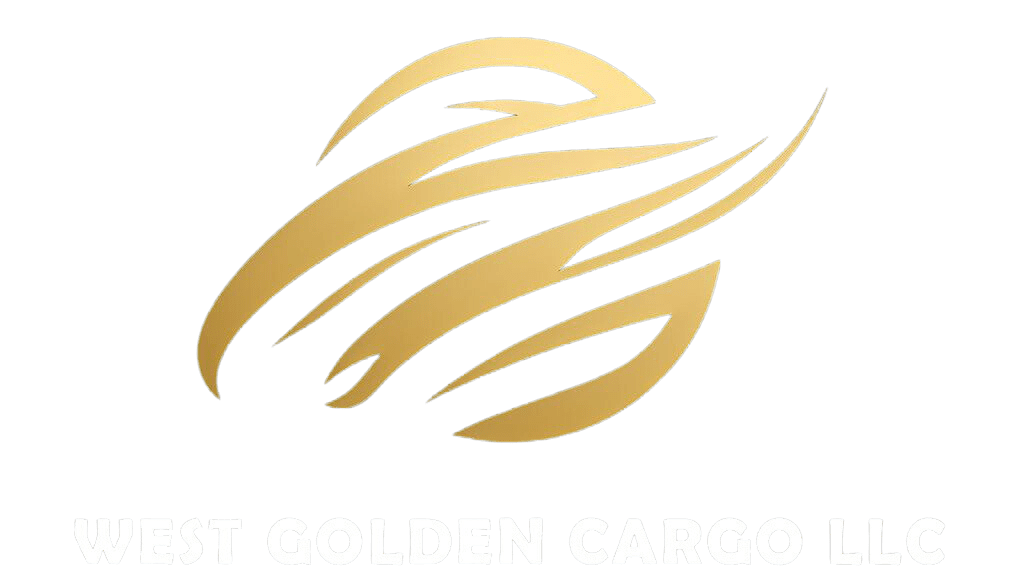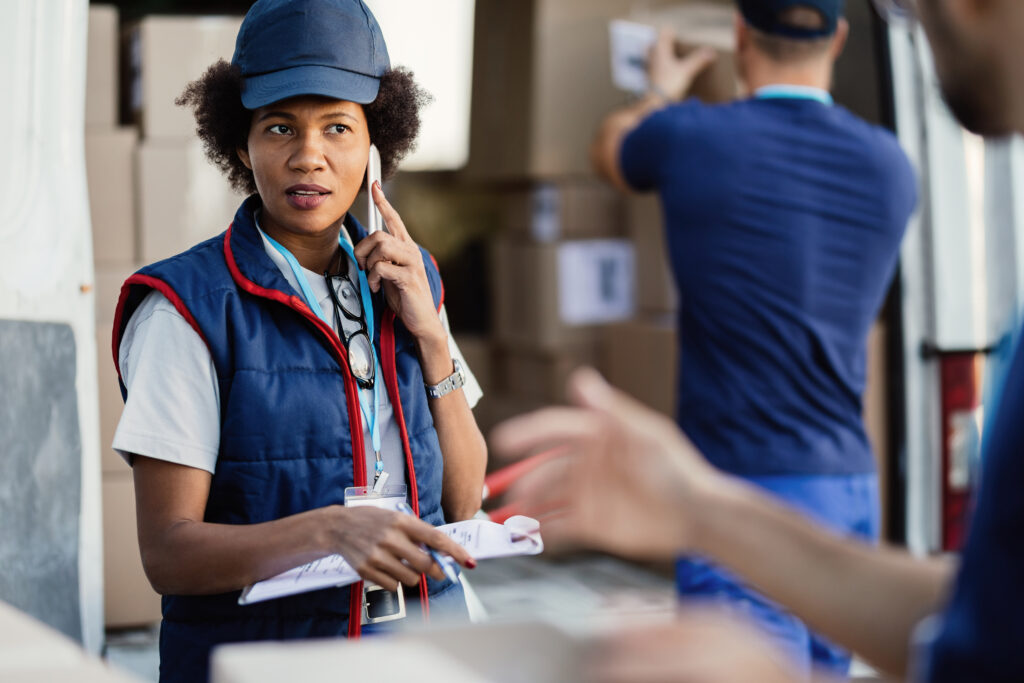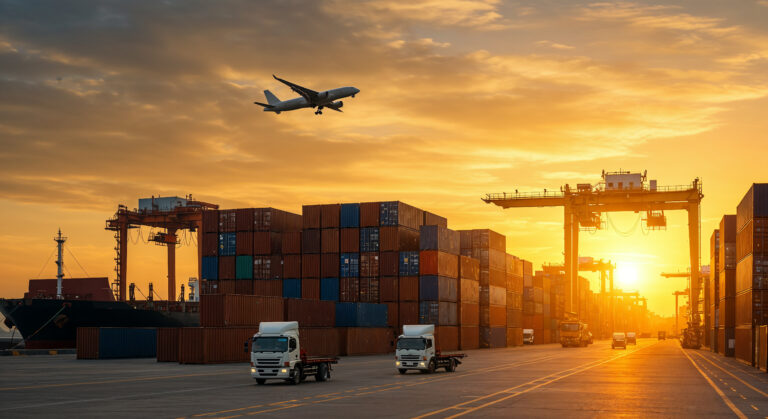Navigating the world of customs clearance can seem tricky, but it's a vital part of international trade. For importers and exporters, understanding this process is key to ensuring goods move smoothly across borders. This guide will help you grasp the basics, manage essential documents, comply with regulations, and leverage technology for efficient customs clearance. With these insights, you'll be well-prepared to tackle common challenges and adopt best practices for a hassle-free experience.

Key Takeaways
- Understanding customs clearance is crucial for smooth international trade.
- Essential documents like commercial invoices and packing lists are necessary for the process.
- Compliance with tariffs, duties, and import/export laws is mandatory.
- Customs brokers can simplify the clearance process and provide valuable assistance.
- Leveraging technology can enhance efficiency and accuracy in customs clearance.
Understanding the Basics of Customs Clearance
Customs clearance is the official process where customs authorities inspect, approve, and release goods coming into (imports) or leaving (exports) a country. Understanding the significance of customs clearance is crucial for importers and exporters alike. This process ensures the legality, safety, and compliance of your shipments.
Key Terminology in Customs Clearance
Before diving into the details, it's important to know some key terms. These include:
- Customs Duty: A tax imposed on imports and exports.
- HS Code: A standardized numerical method of classifying traded products.
- Incoterms: International commercial terms defining the responsibilities of buyers and sellers.
The Role of Customs Authorities
Customs authorities play a pivotal role in this process. They enforce the rules and regulations that govern international trade. They ensure that all goods comply with the laws and regulations of the importing country. This includes inspecting shipments, assessing duties and taxes, and approving the release of goods.
Why Customs Clearance Matters
Customs clearance is the gatekeeper that ensures the legality, safety, and compliance of your shipments. Without it, goods cannot legally enter or leave a country. This process helps prevent illegal goods from crossing borders and ensures that all applicable duties and taxes are paid. It is essential for the seamless transport of goods across borders and compliance with global trade norms.
Essential Documentation for Customs Clearance
Clearing customs successfully begins with proper documentation. The primary documents essential for customs clearance include the Bill of Lading, Commercial Invoice, Packing List, Certificate of Origin, and Customs Declaration. These documents serve as your cargo's identification and provide authorities with the necessary information about its nature, value, origin, and destination.
Navigating Customs Regulations and Compliance
Navigating the customs clearance maze requires vigilance against potential obstacles such as inaccurate documentation, regulatory non-compliance, or misinterpretation of HS codes. Success in this domain is built on the foundation of proactive engagement and an unwavering commitment to remain updated on regulatory changes. Staying informed about customs regulations enables businesses to adapt quickly and efficiently, ensuring a focus on core objectives without customs clearance issues.
The Role of Customs Brokers in Facilitating Clearance
What is a Customs Broker?
A customs broker is a professional who arranges the entire customs clearance process for you. They handle the necessary paperwork, ensure goods are properly declared, and verify that all import activities are legal and in order. Essentially, CBP-certified customs brokers are experts in managing the documentation needed for smooth US customs clearance.
Benefits of Using a Customs Broker
Engaging the services of a customs broker can help streamline the clearance process by navigating regulatory requirements and ensuring compliance with customs procedures. Their expertise can be invaluable in expediting clearance times.
How to Choose the Right Customs Broker
When selecting a customs broker, consider their experience, reputation, and the range of services they offer. It's also important to ensure they are well-versed in the specific regulations and requirements of your industry.
Common Challenges in Customs Clearance and How to Overcome Them
Navigating the customs clearance process requires meticulous attention to detail, adherence to regulations, and effective communication with customs authorities and customs brokers. The efficiency of this process can significantly impact the speed at which your goods are cleared and delivered.
Dealing with Delays and Inspections
Delays and inspections are common hurdles in customs clearance. Incorrect or incomplete documentation often leads to these issues. To avoid delays, ensure all paperwork is accurate and complete. Regularly check for updates in customs regulations to stay compliant.
Managing Customs Rejections
Customs rejections can occur due to various reasons, such as non-compliance with import laws or incorrect declarations. To overcome this, double-check all entries and ensure they meet the required standards. Partnering with a knowledgeable customs broker can also help mitigate these risks.
Avoiding Common Documentation Errors
Documentation errors are a frequent cause of customs clearance problems. Common mistakes include incorrect tariff classifications and missing information. To prevent these errors, use a checklist to verify all documents before submission. Properly declaring the value of the goods is crucial to avoid penalties.
By proactively addressing these common challenges, businesses can significantly reduce the risk of delays and additional costs. Partnering with a trusted customs broker can provide the expertise and support needed to navigate these challenges effectively, ensuring a seamless customs clearance experience.
Leveraging Technology for Efficient Customs Clearance
In today's fast-paced world, technology plays a crucial role in customs clearance. Automated systems and software can help manage customs documentation and track shipments, improving efficiency and reducing errors.
Automated Customs Systems
Automated customs systems streamline the entire process, from documentation to duty assessment. These systems can quickly process large volumes of data, ensuring compliance with relevant regulations. This reduces the risk of human error and speeds up the clearance process.
Tracking and Monitoring Shipments
Digital tools and platforms, such as the Dubai Trade portal, allow businesses to track their shipments in real-time. This visibility helps address issues quickly and ensures that goods move smoothly through customs. Real-time tracking also provides peace of mind, knowing exactly where your shipment is at any given moment.
Digital Documentation and Record-Keeping
Digital documentation and record-keeping are essential for efficient customs clearance. By using electronic forms and records, businesses can easily submit and retrieve necessary documents. This not only saves time but also reduces the chances of losing important paperwork. Additionally, digital records make it easier to stay compliant with customs regulations.
Embracing technology in customs clearance can significantly reduce processing times and enhance overall efficiency. By leveraging digital tools, businesses can ensure a smoother and more reliable customs clearance process.
Best Practices for Smooth Customs Clearance
Preparing Accurate Documentation
Accurate documentation is the key to smooth customs clearance. Make sure you have all the necessary customs clearance paperwork, such as commercial invoices, packing lists, and certificates of origin. Double-checking these documents can significantly reduce clearance times.
Effective Communication with Customs Authorities
Clear and timely communication with customs authorities is essential. If there are any issues or questions, address them promptly to avoid delays. Building a good relationship with customs officials can also help in resolving any unexpected problems quickly.
Utilizing Checklists and Compliance Tools
Using checklists and compliance tools can help ensure that you don't miss any important steps in the customs clearance process. These tools can guide you through the necessary procedures and help you stay compliant with all regulations.
Following these steps meticulously will help in avoiding delays and penalties. By mastering the customs clearance process, you can facilitate smoother international trade and enhance your business operations.
Conclusion
Mastering customs clearance is key for anyone involved in international trade. This guide has given you the tools and knowledge to handle the process with ease. Always keep accurate records, follow the rules, and stay updated on any changes in regulations. By doing so, you can ensure that your goods move smoothly across borders, helping your business succeed globally. Remember, preparation and attention to detail are your best friends in the world of customs clearance.
Frequently Asked Questions
What is customs clearance?
Customs clearance is the process of getting goods approved by customs authorities for import or export. It involves submitting necessary documents and paying any applicable taxes or duties.
Why is customs clearance important?
Customs clearance is crucial because it ensures that goods comply with local laws and regulations. Without it, goods cannot legally enter or leave a country.
What documents are needed for customs clearance?
Common documents required for customs clearance include commercial invoices, packing lists, certificates of origin, and bills of lading.
How can customs brokers help with customs clearance?
Customs brokers are professionals who assist with the customs clearance process. They handle paperwork, ensure compliance with regulations, and help resolve any issues that may arise.
What are tariffs and duties?
Tariffs and duties are taxes imposed on imported or exported goods. They are used to protect local industries and generate revenue for the government.
How can I avoid delays in customs clearance?
To avoid delays, make sure all documents are complete and accurate. Stay informed about current regulations and work closely with customs authorities or brokers.




